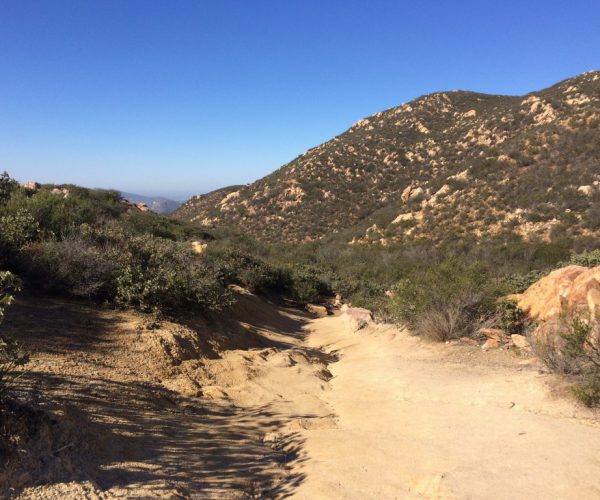We tighten the laces of our hiking shoes and look up to find the giant hill looming ahead. Behind us, the rushing tides of the Pacific Ocean and ahead, a chance to work the legs and lungs. The sun is bright and high, the path winds before us, the expanse of the sparkling water begs for attention while the trees rustle in the wind. Today we choose the beach trail. From the moment the car door slams and the aroma of the sandy beach hits my nose, the relaxation begins. Along the journey, something changes and now scientists believe they know exactly what it is.
There’s far more to hiking than brilliant vistas and great gear. Today, more experiments, studies, and scientific evidence exist that prove that it’s not only about lessening calories, building muscle, and lowering blood pressure. Today’s psychologists believe that spending time in nature actually changes brain chemistry. No longer are hikers cleansing only body, mind and spirit—something chemically good is happening in the brain.
It turns out that nature holds good juju for both our mental and physical well-being. In today’s world people are tied to devices 24/7. On a daily basis, more workers look at screens than at trees. Communication more regularly takes the form of emails or texts instead of walking meetings in the park. Researchers believe that moving away from urban settings and ditching devices benefits the mind, the body, and the brain. A few days camping in the woods or even a few hours on the trails can soothe the constant chatter of the mind and enhance the creative thinking juices.
From Canada to Korea, medical professionals’ studies support these beliefs. Led by Dr. Nooshin Razani, an outpatient clinic in northern California has redesigned to channel nature into its walls and healing plan. Their doctors write prescriptions for patients to spend more time outside. Nature is cheaper than therapy, there are no negative side effects, and it’s nearby to everyone. Across the globe, the world of science reports there might be another option to de-stress the mind and lessen destructive, ruminative thoughts. Instead of setting a calendar reminder to take medication twice daily, the texts on phones can remind you to take a hike, go camping, or walk through the park.

Doctors now prove what they’ve always known: getting outside is good for health. The benefits of hiking are endless. Hiking increases serotonin levels and lowers cortisol (the stress hormone), blood pressure, and heart rates. It prevents and reduces memory loss, grows muscles, and slows down minds. Even the act of viewing trees, grass, or flowing water helps patients recover faster from medical procedures, and it lessens the feeling of isolation and helps students focus better, behave more calmly, and excel more in school.
Studies in England, the Netherlands and Canada show those surrounded by more green space than those who live in urban areas exhibit less mental distress, with better overall health. Recent studies in the Proceedings of the National Academy of Science of the United States show that spending time in nature explicitly lowers negative, obsessive, and ruminative thoughts.
All around the world from Europe to Asia to the US, people are noticing the medicinal benefits of the natural world. South Korea is creating healing forests. South Korean university even offers a degree program in forest healing where students become health rangers. Switzerland supports ‘forest kindergartens’ engaging youth in outdoor exploration 12 months of the year. With a focus on building curiosity and enhancing self-esteem and confidence, these young explorers are able to develop their own way of doing things while receiving the positive benefits of nature.
The antidote for a lot of cruddy crap with which we’re faced could be nature. A Canadian psychology professor, Lisa Nisbet talks about the ‘happiness effect’ that a life enjoying the outdoors brings. Cheryl Strayed felt it firsthand when she undertook her voyage on the Pacific Crest Trail. With the backing of the scientific community, hikers and nature lovers are buoyed in the wisdom they already knew. Getting outside is good for the health and it’s the effects felt from nature that consistently compel the return.

We wind our way along the fairly narrow path. Hikers greet each other along the journey and move to the side to let each other pass. Toddlers ride in packs on the shoulders of their parents and older kids run ahead to try to see what cool tree or rock is beyond the next turn. Life is happening here. The sand kicks up as we head down the rocky stairs. It’s low tide today; we can see the beach. We jump the last step and land on the sand. We ditch our shoes and as the white caps nip our feet our toes wiggle in the sand. A half-mile down the shore and we’re back at the car. Hot, thirsty, hungry, exhilarated and that good kind of tired, we brush off the sand and get in the car. Two hours and a few miles of mindful goodness behind us, we head home happy, invigorated and according to scientists, with thoroughly relaxed prefrontal cortexes.


Leave a Reply